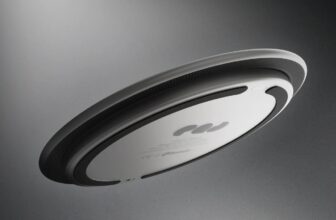A little over a month ago, the 184-foot yacht belonging to tech millionaire Mike Lynch abruptly sank. The boat had been anchored off the coast of Sicily, where it had been parked for a night of partying, when an unexpected “freak storm” came up in the waters nearby. Within 16 minutes, the vessel went down. Lynch, his 18-year-old daughter, his lawyer, and several others, all drowned as a result.
The tragic incident immediately inspired suspicion due to the bizarre timing of the yacht’s sinking. Lynch and his fellow travelers had been aboard the boat to celebrate Lynch’s recent legal victory: the tech executive had recently been found not guilty in a decade-spanning fraud case that involved a multi-billion dollar deal to sell his software company to Hewlett-Packard in 2011. After years of fighting accusations of fraud related to the deal, a U.S. court had—only two months before the tragic boating incident—acquitted the tech executive of all charges related to the case.
Now, in a twist that is sure to rankle conspiracy theorists, CNN reports that the yacht, known as the Bayesian, may contain watertight safes that hold “super-encrypted hard drives.” Lynch apparently did not trust cloud services and, as a result, took encrypted drives with him whenever he went sailing. Those drives, in turn, may “contain highly sensitive data tied to a number of Western intelligence services,” the outlet reports, citing four sources familiar with the local police investigation.
To bolster this argument, CNN stresses Lynch’s high-level government connections, noting that he was “associated with British, American and other intelligence services through his various companies” (Lynch was involved with the cybersecurity industry, which often works hand in glove with government agencies), and in the past, he served as an advisor to multiple British prime ministers, including David Cameron and Theresa May.
Authorities are now trying to seize and protect the sunken hard-drives. CNN reports that police are stepping up security and underwater surveillance around the sunken vessel, apparently fearing that it might be targeted by foreign governments (Russia and China are both mentioned).
It’s an exceedingly weird twist to a story that has already had plenty of weird twists. Case in point: Stephen Chamberlain, Lynch’s business partner (and the co-defendant in the recently concluded legal proceedings), died the same day that Lynch’s boat sunk. Chamberlain had been struck by a car while jogging on August 17th and succumbed to his injuries two days later. While this may sound like something straight out of Michael Clayton, it may also just be a coincidence. The apparent driver of the vehicle that hit Chamberlin is described as having been a 49-year-old woman who “remained at the scene” after police arrived.
Lynch’s software company, Autonomy, was acquired by Hewlett-Packard for $11 billion in 2011. When the deal went through, Lynch was serving as Autonomy’s CEO. Shortly after the deal went through, however, Lynch left the company, and the company’s operations quickly unraveled. He was subsequently accused of inflating the value of Autonomy in the period before it was sold to Hewlett-Packard. Lynch denied these charges and maintained that HP bungled the operations of the company after it was purchased. After years spent in courts fighting the charges, an American court ultimately agreed with Lynch’s story.
Lynch’s attorney, Chris Morvillo, who helped him win the case against HP—also died, along with his wife, when the Bayesian sank. The couple had been celebrating the legal victory alongside Lynch.
Trending Products

Cooler Master MasterBox Q300L Micro-ATX Tower with Magnetic Design Dust Filter, Transparent Acrylic Side Panel…

ASUS TUF Gaming GT301 ZAKU II Edition ATX mid-Tower Compact case with Tempered Glass Side Panel, Honeycomb Front Panel…

ASUS TUF Gaming GT501 Mid-Tower Computer Case for up to EATX Motherboards with USB 3.0 Front Panel Cases GT501/GRY/WITH…

be quiet! Pure Base 500DX Black, Mid Tower ATX case, ARGB, 3 pre-installed Pure Wings 2, BGW37, tempered glass window

ASUS ROG Strix Helios GX601 White Edition RGB Mid-Tower Computer Case for ATX/EATX Motherboards with tempered glass…










